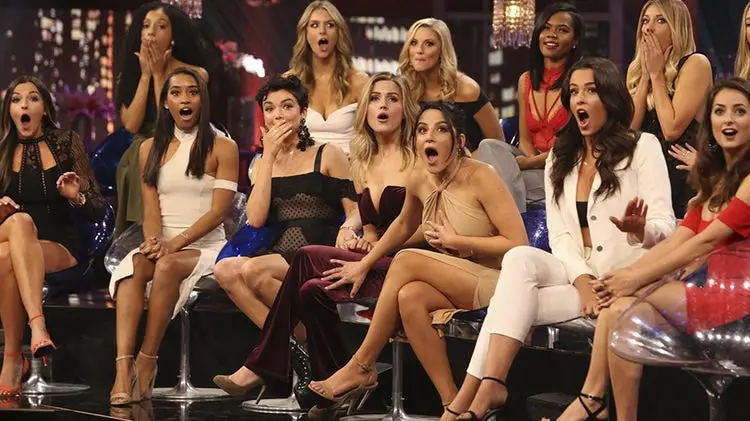SPOILERS AHEAD.
“The biggest night in Bachelor history.”
The phrase repeated over and over throughout last night’s episode. After the “Women Tell All” special, everyone has been wondering how this season finale would play out. Caroline Lunny, a contestant sent home earlier this season, used her time on the Tell All stage to say to Arie, “I know what you did, and I don’t know how you could do that. I just really don’t understand. But I really hope you found what you’re looking for.” And going into the final hour of the three hour finale, now we know.
Long story short: Arie proposed to Becca, Arie still had feelings for Lauren, Arie took back his proposal from Becca and the whole scene between the two unfolded on national television over roughly a 45-minute period, during which he apologized only once.
The long drawn out conversation demonstrates everything that one can find fault with in The Bachelor. Because, yes, we know the show can be terrible, and we can criticize the gendered, competitive, heteronormative nature of the show, but we live for the moments that humanize it: the friendships, the bloopers and yes, the moments where people actually fall in love. The season finale should have embodied all of this.
Yet, viewers are left with Arie, quoted by many as “the worst bachelor in Bachelor history.” His handling of his conversation with his now ex-fiance Becca created a disorienting and upsetting viewing experience. Caught by two different camera angles and running full-through without editing, Arie and Becca’s separation was hard to watch. While it didn’t carry the heart-wrenching sadness as say, Rachel and Peter’s breakup during the last season of The Bachelorette, this episode broke hearts, both on and off screen.
Arie, though asked to leave many times by Becca, remained and continued the conversation long after Becca (or anyone watching) wanted to. It is interesting to look then, at the way this conversation and the production of The Bachelor perpetuates a form of toxic masculinity.
Used to describe the harmful or negative effects of certain traditional male behaviors and norms, toxic masculinity can include traits such as dominance, devaluation of women and suppression of emotions, among others.
Dominance: Arie’s use of body language seemed to highlight a power structure for the conversation at play. By inserting himself into Becca’s space continually and returning/remaining in it even after telling her he would leave, Arie creates a dynamic that continued to elevate his perceived status. Simply due to his position as the Bachelor, however, his ability for choice throughout the season was significantly higher than any of the women contestants. Arie respected her requests not to touch or hug her, demonstrating an understanding of the physical distance she wanted. More than Arie’s actions, though, the show allows for this power dynamic to play out, using this personal relationship for drama, and seemingly deceiving Becca into believing she was meeting Arie for a happy couple’s weekend, only to be completely blindsided. Whether it was Arie’s or the producers’ choice that this interaction be filmed in this way, it highlights the power relationships between producers, bachelor and contestants.
Devaluation of Women: It was surprising how long this conversation lasted. As the end of the episode approached, a conclusion kept seeming to present itself, followed by more conversation. Arie’s actions and flip flopping between the two women are not necessarily reprehensible, and his honesty when realizing that he could not commit is not either. But the filming of this scene shows how little care is put into the individuals on the show. There was no need for the embarassment of Becca in such intimate detail, and the devaluation of her and the relationship for the sake of “good TV” almost makes you feel complicit in watching.
Suppression of Emotions: Arie has been consistently criticized throughout the show for being “emotionless” both in his facial expressions and verbal responses to events during this season, but once again, there is something inherent about the show, not the men who are on it, that seem to perpetuate this. The treatment of emotions across gender is highly differentiated, where men may be praised for any emotion or just as easily be scorned for it.
Overall, this season of The Bachelor was incredibly disappointing, particularly in the production. Other Bachelor couples have broken up, and even have broken up for the runner up. But televising those conversations is new.
Though controversial, this season finale guaranteed that everyone would be talking about The Bachelor. And with another After the Final Rose episode tonight at 8 p.m., the hype and Twitter buzz will surely continue throughout the week.




